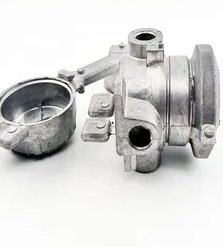
Whether it's automotive parts, consumer products or industrial equipment, die-cast aluminum parts offer the perfect combination of speed, precision and reliability. This makes them the first choice for manufacturers looking to optimize their production processes and meet tighter tolerances.
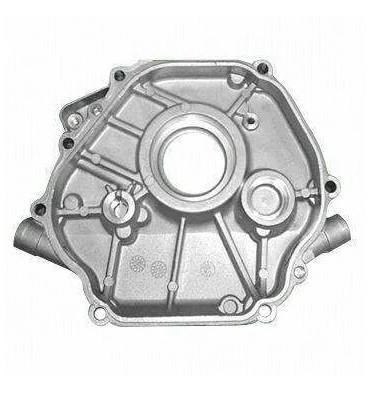
In electronics, die-cast aluminum components excel because they are lightweight yet strong, allowing for compact designs without compromising performance. Thermal conductivity of aluminum alloys is another key factor in effectively cooling sensitive electronic components, thereby extending product life and improving reliability.
The die-casting process allows the creation of complex shapes with integrated features such as fins, pins and threads in a single part. This not only reduces assembly complexity but also minimizes material waste and overall costs. It is particularly beneficial for the production of enclosures, heat sinks, brackets and chassis for equipment ranging from consumer electronics to industrial control systems.
In addition, die-cast aluminum parts can be surface treated or coated to enhance aesthetics, electrical insulation, or corrosion resistance, making them ideal for use in harsh environmental conditions. Therefore, high-performance die-cast aluminum parts play a key role in enabling cutting-edge technologies while ensuring durability, functionality and cost-effectiveness across various electronics industries.
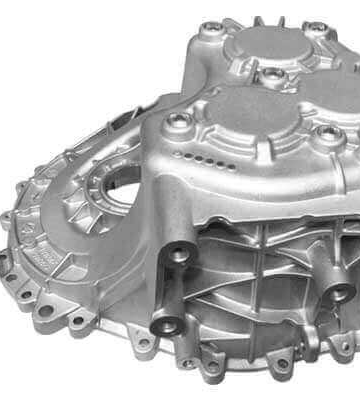
When aluminum alloys are die cast, they form parts that are inherently corrosion-resistant due to the nature of the aluminum itself, which forms a thin, adherent oxide layer on its surface when exposed to air. This oxide film acts as a barrier, protecting the underlying metal from further oxidation and subsequent corrosion.
Die-cast aluminum typically involves the use of specially formulated alloys to enhance durability and resistance to environmental factors such as moisture, salt spray and chemical exposure. These alloys can contain elements such as magnesium, silicon and zinc, which not only improve mechanical properties but also help improve corrosion resistance compared to pure aluminum.
In addition, die-cast aluminum parts can undergo post-production processes such as anodizing or applying protective coatings to further enhance their ability to withstand harsh environments without rusting or corroding. Anodizing thickens the natural oxide layer, increasing durability and improving appearance, while specialized coatings can provide additional protection against specific types of corrosion.
In summary, die-cast aluminum parts inherently exhibit good resistance to corrosion and rust, making them ideal for applications requiring long-term reliability and minimal maintenance, including automotive parts, marine equipment, construction accessories, and industrial machinery.

Die casting technology provides an efficient and cost-effective method for mass production of complex aluminum parts. The process involves injecting molten aluminum alloy under high pressure into a reusable steel mold, which solidifies rapidly, creating precision, complex-shaped parts with excellent dimensional accuracy.
Die-cast aluminum parts improve manufacturing productivity in several ways:
1. Production speed: The cycle time of die casting is relatively short and the production speed is very fast. Thousands or even millions of identical parts can be produced every year. This enables manufacturers to efficiently meet high-volume demands.
2. Design flexibility: Complex geometries and thin walls can be achieved through die casting, often without the need for additional machining steps, thereby reducing secondary operations and labor costs.
3. Material efficiency: Due to high utilization rate, this process minimizes material waste, making it more sustainable and economically advantageous compared to other metal forming technologies.
4. Reduce weight and enhance performance: The aluminum alloys used in die casting are lightweight yet strong, helping to improve the performance of the final product while maintaining or reducing overall weight, a key factor in industries such as automotive and aerospace.
In summary, die-cast aluminum parts have a profound impact on manufacturing productivity by enabling mass production of high-quality, complex components that require minimal finishing, ultimately reducing costs and increasing output efficiency across various departments.
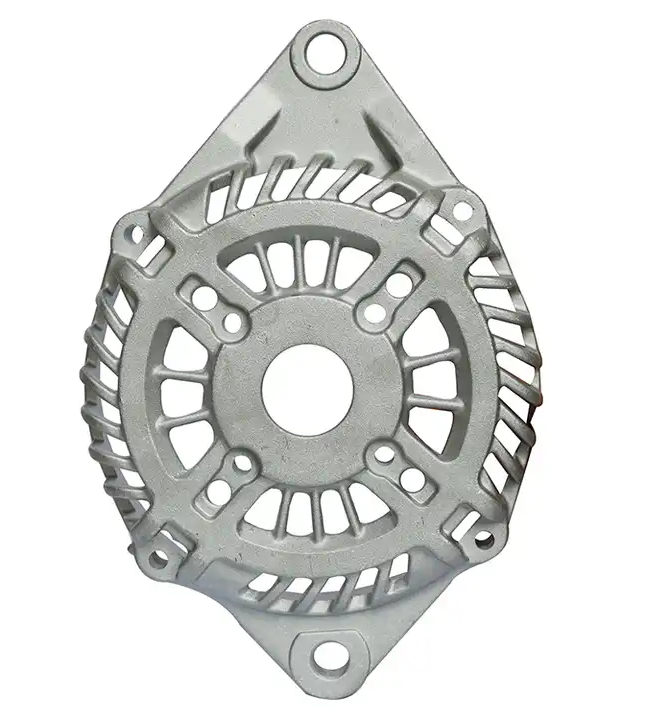
Die-cast aluminum parts are particularly suitable for complex designs because they can contain thin walls, tight tolerances, and internal features such as ribs, bosses, and channels. The process not only delivers high precision but also ensures consistent quality in high-volume production, making it ideal for applications where uniformity and reliability are critical.
In electronics, automotive, aerospace and other industries that require complex geometries, die-cast aluminum parts offer an unparalleled balance between strength, weight and functionality. The ability to cast complex shapes in one piece eliminates the need for multiple assembly steps or secondary operations, reducing costs and enhancing structural integrity.
Additionally, the use of CAD/CAM software combined with advanced simulation tools allows engineers to design molds that account for shrinkage, thermal stress and potential defects, further improving the accuracy and performance of die-cast aluminum parts. As a result, this approach has become the preferred choice for manufacturers looking for a cost-effective solution without compromising the complexity or quality of their product designs.
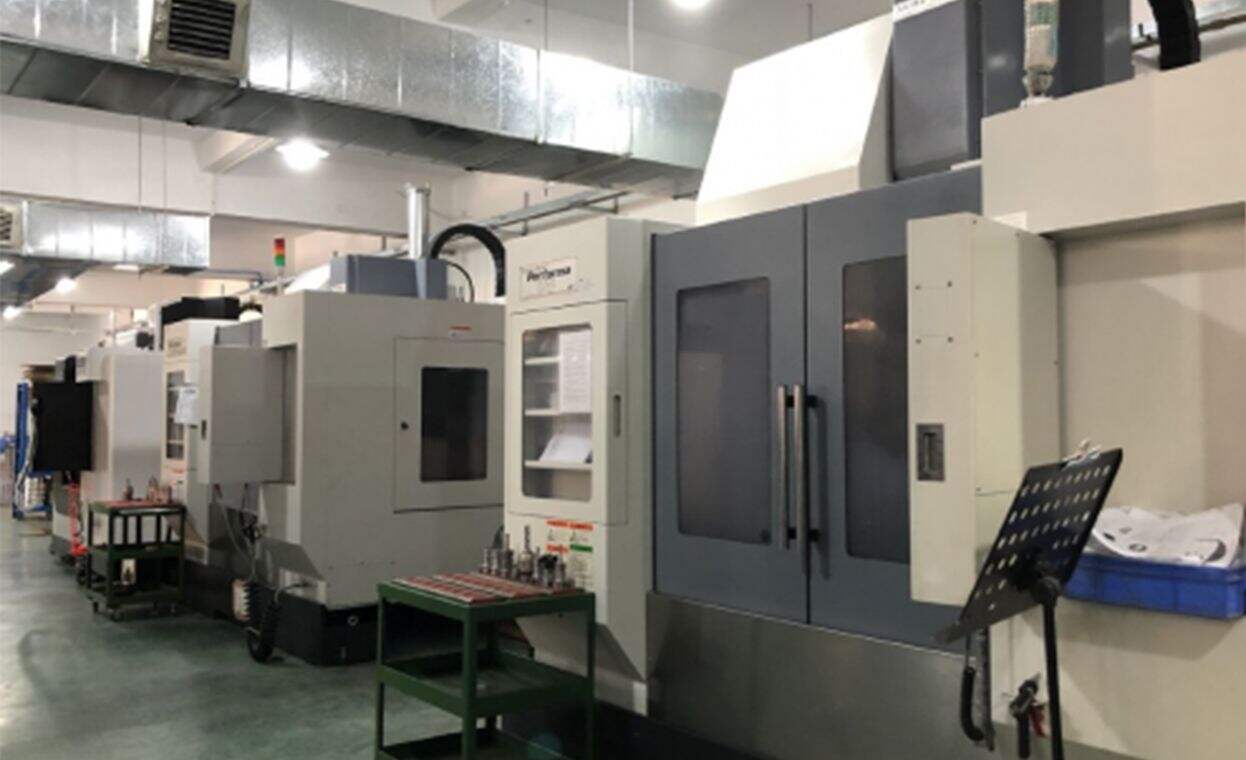
RMT is a precision custom manufacturing provider. We provide high-quality manufacturing with on-time delivery at competitive prices. Express your requirements and once confirmed, we will develop a solution that satisfies you. Every step in the process We will continuously communicate with you at every stage so that you can understand all the information about product manufacturing.
Put the needs and expectations of customers first and center, customize satisfactory solutions with personalized services for them, and exceed customers' expectations, thereby cultivating reliable long-term trust relationships.
Guiding clients through the custom manufacturing process from concept to completion, our consultants work closely with each client to understand their unique specifications and provide strategic insights for personalized production solutions
We utilize state-of-the-art machinery and strict quality control measures to manufacture components to precise tolerances. Every part undergoes rigorous inspection to ensure micron-level accuracy to meet the most demanding specifications.
From raw materials to finished products, we meticulously adhere to strict standards, monitoring and testing every step using cutting-edge methods to guarantee consistent performance and durability in all our products.
Die casting for aluminum parts offers advantages such as excellent dimensional accuracy, intricate design capabilities, lightweight yet strong construction, and efficient heat dissipation.
The lightweight nature of die casting aluminum parts in the automotive industry contributes to improved fuel efficiency, enhanced performance, and increased payload capacity.
Die casting aluminum parts exhibit excellent thermal conductivity, allowing for efficient heat dissipation, which is crucial for maintaining optimal performance and preventing component failure in electronic devices.
Die casting enables the production of complex geometries and tight tolerances, allowing for high precision and intricate designs in aluminum parts manufacturing.
Die casting aluminum parts naturally form a protective oxide layer that enhances their resistance to corrosion, ensuring their longevity and suitability for applications exposed to moisture, chemicals, or harsh environments.
